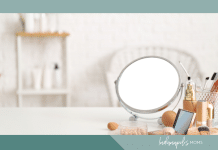Sushi. Wine. Kitty Litter. Lunch meat. Runny eggs. Rare steak. Know this list? If you’ve been pregnant, you probably do. It’s just a few of the things pregnant women are advised against. While I’m not suggesting you ignore your doctor’s advice, I am curious as to why it seems medical advice is constantly trying to scare pregnant women? And, it seems it doesn’t stop at doctors or medical professionals. I have received side-eye and comments from total strangers while trying to enjoy my Jimmy John’s in peace. (Listeria has been found in things such as frozen vegetables, cantaloupe, and bean sprouts—nobody is out here banning those items!) I think we all know that most (like, 99.9%) pregnant women want what is best for their babies. Sure, I can avoid the items on that list for a few months—no problem—but, does it end there?
What about all the other scare tactics we have to endure during pregnancy? I decided to change my OB for a long list of reasons, but one of them being I didn’t find the doctors or the staff to be very joyful. I’m not Suzy Sunshine myself, but I do think that if you are working in the baby business, you should be at least approachable. Maybe, even one of those people who smiles just for fun. I find the staff and doctors to be very warm and joyful at my new practice and it makes going to appointments much more enjoyable. One negative I still encounter is a tendency to frighten instead of encourage. I’m a self-proclaimed worrier and anxiety-riddled monster most days—I know this about myself. I look forward to each doctor’s visit just to hear the heartbeat and feel some sense of relief that everything is OK and still going as it should. Due to a serious lack of family medical history (long story), my husband and I decided to do genetic testing with both our last baby and this current pregnancy. With our first son, we found out the results within 5 days of my blood draw! We knew the sex and that every little chromosome was perfect by 13 weeks. This time, it took almost 4 weeks of waiting, and the waiting nearly killed me. According to the test, we have a perfectly healthy baby boy on the way—yay! But, before leaving the doctor’s office that day she said something akin to, “Now we just need to wait until your anatomy scan to make sure there are no anatomical defects. Be sure to schedule that before you leave today.” It knocked the wind completely out of my sails. I’d spent weeks worrying myself into a tizzy to finally get the great news, and now she wanted to worry me again? By the way, I’m in no way “high risk.” I’m 31, in good shape and no previous health concerns or problematic pregnancies.
Why can’t we just let pregnant women relax? Oh, we tell them to put their feet up, take a load off, don’t worry so much little darlin’! What we really mean to say is, “Don’t be thinking for yourself and do anything that isn’t on the prescribed list of foods and activities. Also, stop worrying so much, but also don’t think you’re out of the woods yet.”
At my last visit, I had my anatomy scan with a regular visit scheduled immediately after. I didn’t want to face a few days of worry before she read the results. I could tell from the ultrasound tech that everything looked good—something the doctor confirmed minutes later. She gave no indication of further worries, and I was left to fill my sails full of wind again, for now. I should have prefaced this blog by stating I KNOW many, many women face pregnancy complications and these tests and to-dos are not without reason. My heart breaks for all the women who have endured bad news with genetic tests or anatomy scans and I feel super blessed that I have not and don’t take it for granted. However, I do wish society and doctors could give us a bit more space to find joy in pregnancy again. Not all countries do it like we do*, not all pregnancies are the same or require the same amount of testing and/or worry. I think what I’m trying to say is, I’m a responsible adult, treat me like one!
*Did you know? Europe doesn’t do standardized glucose testing, Japanese women still eat sushi, soft (unpasteurized) cheese and small amounts of wine are consumed in various European countries, and their infant and maternal mortality rates are on par or better than the United States!









